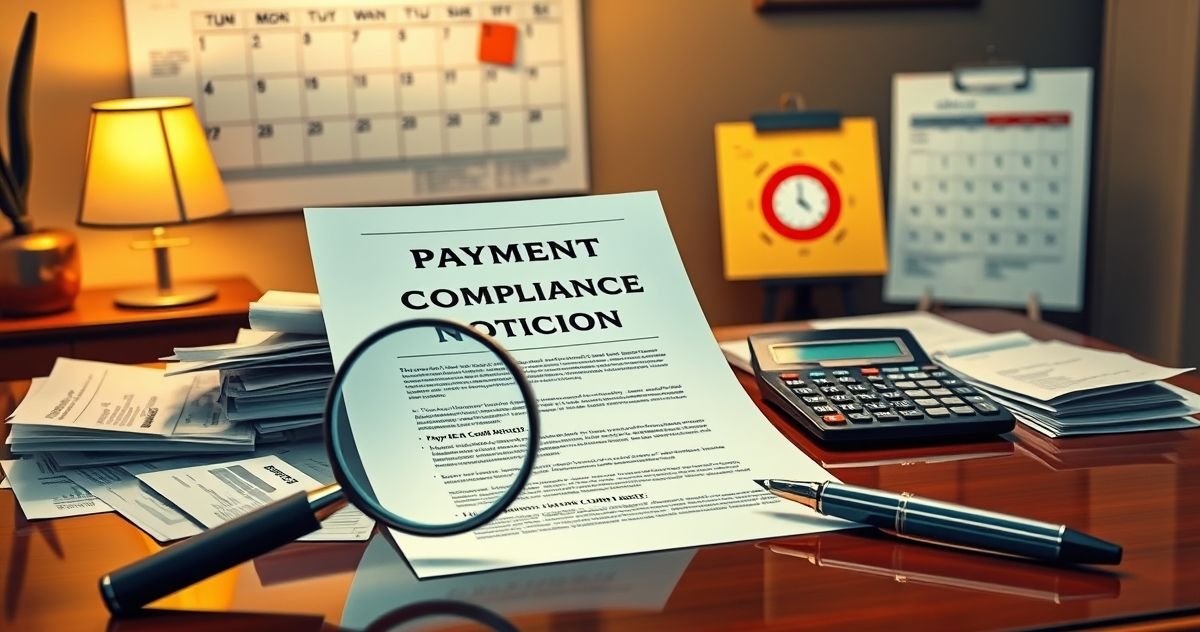Understanding Payment Compliance Review Notification
The Payment Compliance Review Notification is an official communication issued to taxpayers by financial regulatory bodies, typically the Internal Revenue Service (IRS), to review and assess the compliance status of their tax payments. This notification serves as a vital instrument in maintaining transparency, accuracy, and accountability in tax-related financial records. The primary purpose of this review is to ensure that all payments made towards taxes are accurate, timely, and in compliance with the regulatory framework governing tax obligations.
Primary Purpose
The fundamental aim of a Payment Compliance Review Notification is to guarantee that taxpayers adhere to the established guidelines for tax payments. This review process is crucial for identifying discrepancies or errors in tax records, which, if overlooked, could lead to severe penalties. By initiating this review, regulatory authorities endeavor to maintain integrity in the tax system and foster a culture of compliance and responsibility among taxpayers.
Key Features or Components
1. Detailed Review of Payments: The notification involves a meticulous examination of all tax payments made by the taxpayer. It cross-verifies the amounts with reported income and deductions to ensure consistency.
2. Documentation Requirement: Taxpayers are typically required to present supporting documentation that corroborates their reported figures. This might include wage statements, invoices, receipts for deductions, and other relevant documents.
3. Discrepancy Identification: Any inconsistencies or errors discovered during the review are highlighted in the notification. Taxpayers are informed of these discrepancies and provided with guidance on how to rectify them.
4. Response Deadline: It usually specifies a timeframe within which the taxpayer must respond or provide additional information. Timely responses are critical to avoiding potential penalties.
Relevant Filing or Compliance Requirements
To comply with the standards set forth in the Payment Compliance Review Notification, taxpayers must adhere to particular filing and compliance requirements. These include:
- Providing accurate and comprehensive data regarding all income sources and tax-related financial transactions.
- Ensuring that all claimed deductions and credits are supported by valid documentation.
- Meeting the deadlines for submitting responses and any required additional information.
- Amending filed tax returns if necessary to reflect accurate and updated information.
Penalties or Consequences for Non-Compliance
Failing to comply with a Payment Compliance Review Notification can result in serious consequences, such as:
- Monetary Penalties: Non-compliance often leads to fines and interest on unpaid or underpaid taxes.
- Legal Actions: Persistent non-compliance may trigger legal proceedings, including asset seizures or garnishments.
- Increased Audit Risk: Non-compliance can increase the likelihood of future audits and more intensive scrutiny by tax authorities.
Importance in Tax Resolution
The Payment Compliance Review Notification is instrumental in the broader context of tax resolution and financial compliance. It empowers taxpayers by providing them an opportunity to review and correct their financial records align with tax requirements proactively. This review helps prevent escalations that could lead to more severe financial repercussions. Furthermore, complying with this notification promotes a transparent relationship between taxpayers and the IRS, reducing potential disputes and fostering a cooperative approach to financial management.
Overall, this notification is a critical tool for safeguarding both the interests of taxpayers and the integrity of the tax system. By recognizing its importance and responding appropriately, taxpayers can effectively mitigate risks and maintain a more stable financial standing.
With its comprehensive framework, the Payment Compliance Review Notification not only assures compliance but also enhances the individual’s fiscal responsibility and commitment to the obligations within the tax infrastructure.



